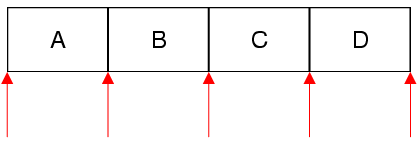The QFutureIterator 类提供 Java 样式常量迭代器为 QFuture . 更多...
| 头: | #include <QFutureIterator> |
| qmake: | QT += core |
| Since: | Qt 4.4 |
注意: 此类的所有函数 可重入 .
| QFutureIterator (const QFuture<T> & future ) | |
| bool | findNext (const T & value ) |
| bool | findPrevious (const T & value ) |
| bool | hasNext () const |
| bool | hasPrevious () const |
| const T & | next () |
| const T & | peekNext () const |
| const T & | peekPrevious () const |
| const T & | previous () |
| void | toBack () |
| void | toFront () |
| QFutureIterator & | operator= (const QFuture<T> & future ) |
The QFutureIterator 类提供 Java 样式常量迭代器为 QFuture .
QFuture 同时拥有 Java 风格迭代器 and STL 样式迭代器 . The Java-style iterators are more high-level and easier to use than the STL-style iterators; on the other hand, they are slightly less efficient.
An alternative to using iterators is to use index positions. Some QFuture member functions take an index as their first parameter, making it possible to access results without using iterators.
QFutureIterator <T> allows you to iterate over a QFuture <T>. Note that there is no mutable iterator for QFuture (unlike the other Java-style iterators).
The QFutureIterator constructor takes a QFuture as its argument. After construction, the iterator is located at the very beginning of the result list (i.e. before the first result). Here's how to iterate over all the results sequentially:
QFuture<QString> future; ... QFutureIterator<QString> i(future); while (i.hasNext()) qDebug() << i.next();
The next () function returns the next result (waiting for it to become available, if necessary) from the future and advances the iterator. Unlike STL-style iterators, Java-style iterators point between results rather than directly at results. The first call to next () advances the iterator to the position between the first and second result, and returns the first result; the second call to next () advances the iterator to the position between the second and third result, and returns the second result; and so on.

Here's how to iterate over the elements in reverse order:
QFutureIterator<QString> i(future); i.toBack(); while (i.hasPrevious()) qDebug() << i.previous();
If you want to find all occurrences of a particular value, use findNext () 或 findPrevious () in a loop.
Multiple iterators can be used on the same future. If the future is modified while a QFutureIterator is active, the QFutureIterator will continue iterating over the original future, ignoring the modified copy.
另请参阅 QFuture::const_iterator and QFuture .
构造迭代器为遍历 future . The iterator is set to be at the front of the result list (before the first result).
另请参阅 operator= ().
搜索
value
starting from the current iterator position forward. Returns
true
if
value
is found; otherwise returns
false
.
After the call, if value was found, the iterator is positioned just after the matching result; otherwise, the iterator is positioned at the back of the result list.
另请参阅 findPrevious ().
搜索
value
starting from the current iterator position backward. Returns
true
if
value
is found; otherwise returns
false
.
After the call, if value was found, the iterator is positioned just before the matching result; otherwise, the iterator is positioned at the front of the result list.
另请参阅 findNext ().
返回
true
if there is at least one result ahead of the iterator, e.g., the iterator is
not
at the back of the result list; otherwise returns false.
另请参阅 hasPrevious () 和 next ().
返回
true
if there is at least one result ahead of the iterator, e.g., the iterator is
not
at the front of the result list; otherwise returns false.
另请参阅 hasNext () 和 previous ().
Returns the next result and advances the iterator by one position.
Calling this function on an iterator located at the back of the result list leads to undefined results.
另请参阅 hasNext (), peekNext (),和 previous ().
Returns the next result without moving the iterator.
Calling this function on an iterator located at the back of the result list leads to undefined results.
另请参阅 hasNext (), next (),和 peekPrevious ().
Returns the previous result without moving the iterator.
Calling this function on an iterator located at the front of the result list leads to undefined results.
另请参阅 hasPrevious (), previous (),和 peekNext ().
Returns the previous result and moves the iterator back by one position.
Calling this function on an iterator located at the front of the result list leads to undefined results.
另请参阅 hasPrevious (), peekPrevious (),和 next ().
Moves the iterator to the back of the result list (after the last result).
另请参阅 toFront () 和 previous ().
Moves the iterator to the front of the result list (before the first result).
Makes the iterator operate on future . The iterator is set to be at the front of the result list (before the first result).